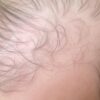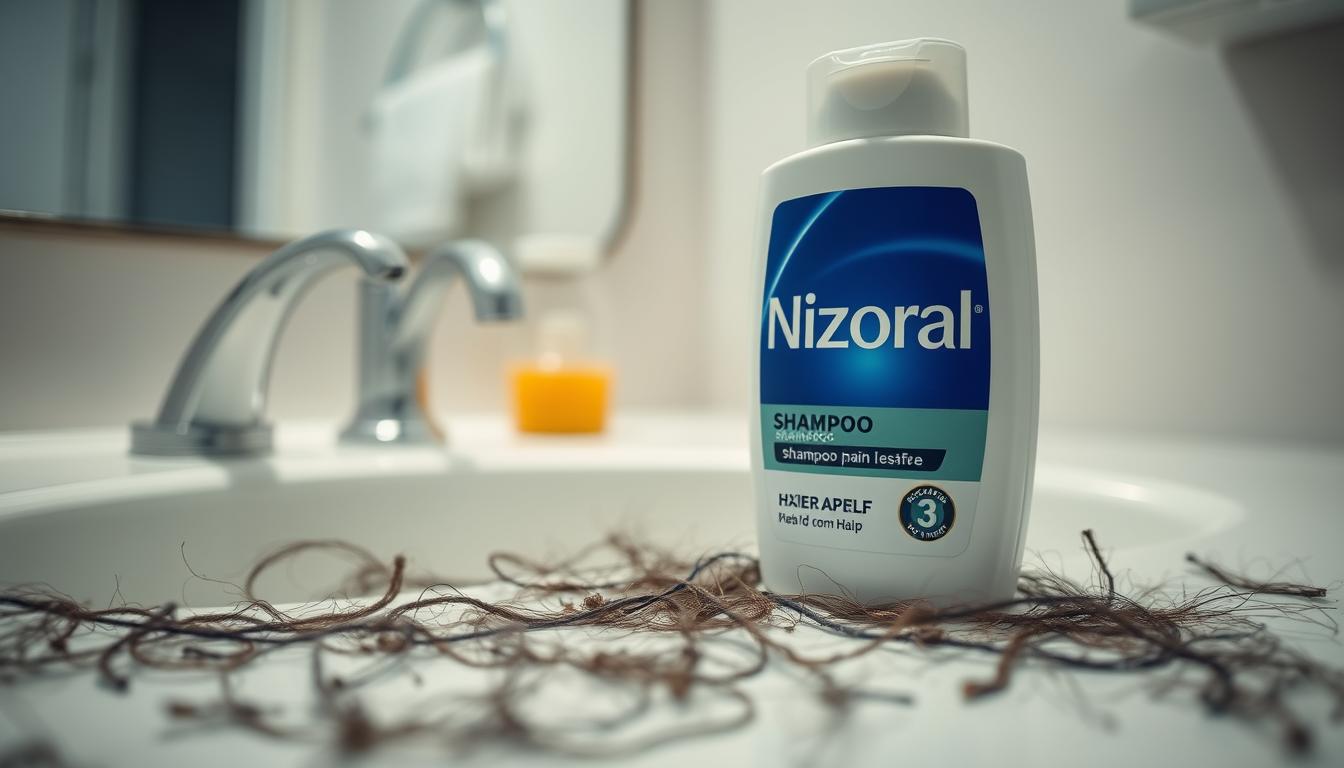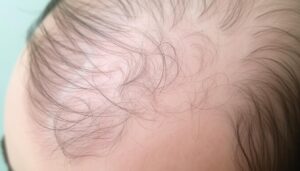Are you worried that Nizoral shampoo might cause hair loss? You’re not alone. This antifungal medication has raised concerns about its effect on hair. But what’s going on? Let’s look into the science and facts to help you decide if it’s safe for you.
Key Takeaways
- Nizoral is a popular antifungal shampoo used to treat conditions like dandruff and seborrheic dermatitis.
- The active ingredient in Nizoral, ketoconazole, may have a role in both promoting and preventing hair loss.
- Understanding how Nizoral works and its potential side effects are crucial in determining its impact on hair health.
- Hair loss solution: scalp micropigmentation (SMP)
What is Nizoral and How Does It Work?
Nizoral is a medicated shampoo with ketoconazole, an antifungal. It treats scalp conditions like seborrheic dermatitis, a common dandruff cause. By fighting scalp fungus, Nizoral promotes a healthy scalp and hair growth. For this reason, some use Nizoral shampoo for hair loss. Here are the active ingredients in Nizoral shampoo:
- Ketoconazole: The main ingredient, ketoconazole fights scalp fungus.
- Zinc Pyrithione: Works with ketoconazole to stop fungal overgrowth.
- Selenium Sulfide: An antifungal agent that controls dandruff-causing fungus.
Factors That Affect Hair Loss
Hair loss is a multifaceted issue that can affect individuals of all ages and genders. Various factors contribute to this concern, ranging from genetic predisposition to environmental influences. One significant factor is hormonal imbalance, which can cause conditions like androgenetic alopecia or pattern baldness. This type of hair loss is often hereditary and can be triggered or exacerbated by changes in hormone levels, especially during puberty, pregnancy, or menopause.
Another critical aspect is the role of stress; prolonged psychological stress can lead to a condition known as telogen effluvium, where hair follicles prematurely enter the shedding phase.
Additionally, nutritional deficiencies can play a significant role in hair health. Lack of essential nutrients, such as vitamins, minerals, and proteins, can weaken hair strands and hinder new growth. A well-balanced diet rich in vitamins A, D, E, iron, zinc, and omega-3 fatty acids is crucial for maintaining healthy hair.
Does Nizoral Cause Hair Loss? The Truth Behind the Concern
Many people worry that Nizoral, a well-known antifungal shampoo, might lead to hair loss. This worry is understandable, as any change in hair care can affect hair health. But the real story about Nizoral and hair loss is more complex than it seems.
Can Nizoral cause hair loss? Nizoral might cause temporary shedding or irritation in some. This usually happens because the shampoo’s strong formula can upset the hair growth cycle or cause an allergic reaction in a few people, which can lead to Nizoral hair loss.
Common Uses and Benefits
Nizoral shampoo, primarily known for its antifungal properties, has gained popularity as a potential treatment for hair loss. Many individuals experiencing thinning hair often seek solutions that can enhance hair health, leading to questions like, does Nizoral help with hair loss?
Clinical studies suggest that the active ingredient, ketoconazole, may reduce inflammation and regulate hormones that contribute to hair follicle miniaturization, providing some promise for those looking to combat alopecia. This dual action of addressing dandruff and promoting a healthier scalp environment makes Nizoral shampoo an attractive option for those experiencing hair loss.
Hair Loss Solution: Scalp Micropigmentation
If you are looking for a solution to your hair loss, scalp micropigmentation (SMP) is a great option! It has emerged as an innovative solution for individuals grappling with hair loss. This non-invasive procedure involves the application of specialized pigments to the scalp, creating the illusion of a fuller head of hair.
It can be an attractive option not only for those experiencing thinning hair but also for individuals with alopecia or scars from hair transplants. The results are designed to look natural and can significantly boost one’s confidence, allowing people to feel more comfortable in their skin.
Conclusion
If you’re concerned about hair loss, scalp micropigmentation (SMP) could be the transformative solution you’re looking for. Come visit us at ScalpMasters, where we specialize in this cutting-edge, non-invasive procedure that creates the appearance of a fuller, natural head of hair. Whether you’re dealing with thinning hair, alopecia, or scarring from hair transplants, SMP can restore your confidence.
Don’t wait to take the next step in your hair restoration journey. Contact us today to schedule a consultation. Let us help you achieve the look you’ve always wanted!











